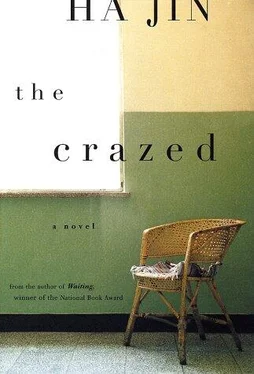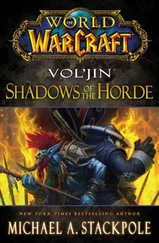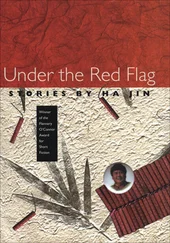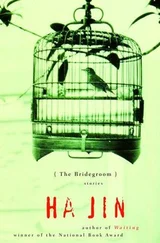“I’ll do my best,” I said, glancing at the blob of phlegm floating on the rust-red water.
“Good. If you need any help, let me know.”
“I will.”
As he walked away, a muffled jangle came from his flank. He always carried a large set of keys on his belt. He left behind a tang of alcohol, sweetishly sour. It was said that he would start his day with a cup of liquor. He was so fond of drink people joked that a bottle was a must if you went to him for help. It was rumored that a graduating senior had once gotten a good job assignment because he had presented Chairman Song with an expensive-looking bottle of French brandy that later turned out to be cheap champagne (another version of the story claimed it was plain water). But I don’t think any student would dare to trick him that way.
I was unsure whether Professor Song’s concern for Mr. Yang and me was genuine. For over a year, whenever possible, he had kicked me around; since he couldn’t always lay his hands on Mr. Yang, he’d take out his anger and frustration on me. A couple of times he criticized me for listening to foreign English broadcasts. The previous summer he assigned me to join a team of faculty members in grading the college entrance exams, so that I had to stay at school two extra weeks after the summer break started. Owing to his opposition, the department had almost refused to hire me as an instructor if I couldn’t get into the Ph.D. program at Beijing University. Eventually it agreed to keep me, mainly because I had just published a lengthy paper in Poetic Inquiry, which stirred up a debate, and because a few senior faculty argued that I was quite promising in the field. Yet despite my suspicion of Professor Song, I did have some positive feelings about him today. Perhaps he at last meant to make reconciliatory overtures to Mr. Yang.
I went on to the dining hall, which was full of people eating breakfast. There wasn’t a single stool in the room, so they were all standing around a dozen tables, whose tops were covered with grease, dust, and dead flies. Most students and staff would go to a much larger dining hall at the southern end of the campus, which was cleaner and had hundreds of stools in it, but this smaller place was closer to my dormitory, so I preferred to eat here. I bought a bowl of millet porridge, a twisted roll, and two salted eggs. Holding my breakfast, I walked across to a corner and began eating.
At the door, Little Owl was delivering a speech again. I call him that because I don’t know his name and because his small body, round face, yellow eyes, tufty hair, and aquiline nose always reminded me of an owl. He was known as a madman who had been a lecturer in the Chemistry Department three decades before. In the late 1950s he was branded a rightist, arrested, and sent away to a prison camp near Siberia. When he saw that the convicts were beaten every day and heard that some of them, unable to endure the torture and hard labor, had committed suicide, he started to feign madness. He shouted slogans, chanted songs, imitated animals’ cries, talked nonsense, and smeared mud and human feces on himself so as to avoid beating, interrogation, and backbreaking work. He played the idiot for more than twenty years, which helped him outlive most of the convicts. But somehow this faked insanity had grown into his nature — when he was finally released, he could no longer control himself and had to continue to rave and curse every day, suffering from “mental incontinence,” as some people put it. He often laughed or wept or blustered randomly; the more attention you paid to him, the more excited he would get. The dining hall was his favorite place for giving speeches.
“Comrades, George Bush is the number-one Current Counterrevolutionary,” he announced, still using the outdated language. “Bush has the blackest heart and guts. We must overthrow him, beat him to the ground, and trample on him, so that he will never stand up again!” The ferocity in his voice could hardly arouse any interest from the breakfasters. This was a daily show, of which people had wearied.
Having sensed he didn’t have a responsive audience today, Little Owl tried something different. He burst out singing:
The east wind blows
While the battle drums roll.
Who fear whom on the globe?
People are not afraid
Of the American imperialists,
Who actually fear people. .
He sang hysterically, beating time with his tiny fists, one of which had a battered knuckle. Nobody listened to the song, which had been long out of fashion. But today his crazed voice grated on my nerves, so I cried, “Shut up!”
All eyes turned to me as if I were a madman too. Little Owl yelled ecstatically, “Look, comrades, he’s on the side of American imperialism!”
Several girls giggled, looking my way. One of them had a carmine dot on her forehead like an Indian woman. I picked up my bowl and started for the door. To my surprise, Little Owl followed me, brandishing his fists and shouting, “Down with this imperialistic lackey! Down with him! Down with this American running dog!” It was as if I were being paraded on the street. I could do nothing but ignore him.
I placed my bowl on the ground under a large elm tree, squatted down on my heels, and resumed eating. I peeled an egg, but no sooner had I taken a bite of it than a hand was thrust before my face. It was Little Owl’s dirty, scabbed paw. He wanted to share my breakfast.
“Get lost!” I said.
He declared vociferously, “Chairman Mao has instructed us: ‘We come from all corners of the country and have joined together for a common revolutionary cause. So our cadres must show concern for every soldier, and all people in the revolutionary ranks must care for each other, must love and help each other.’ Now, you must give me some grub, I’m your soldier. You cannot discard me like a cracked pot just because you’re a big shot now.”
“Give me a break!” I snapped. Meanwhile, more than twenty people were gathering around to watch.
He wouldn’t leave me alone and went on quoting instructions from Chairman Mao, as if the Great Leader were still alive. Too embarrassed to remain the target of his harangue, I put my uncracked egg in his palm. He grabbed it, whisked around, and scampered away to the hot-water room, holding the egg above his head and shouting, “Long live Chairman Mao! Long live the Communist Party!” That was an old way of expressing one’s joy, but now the shibboleth sounded farcical.
Despite his pitiable condition, Little Owl ate better food than most of us. Usually people were generous to him, and he could eat his fill in the kitchen. My roommate Mantao often quipped that China was a paradise for idiots, who were well treated because they incurred no jealousy, posed no threat to anyone, and made no trouble for the authorities — they were model citizens through and through. Indeed, most of the retarded and the demented were taken care of by the state. Mantao went so far as to claim that this “pseudo-philanthropy,” a word he actually used, had caused China to degenerate intellectually as a nation.
After breakfast I was so distressed that I didn’t go to Mr. Yang’s office to review my notes on ancient prosody as I had planned. Instead, I went to the library and spent two hours browsing through some journals and magazines. Afterward I decided to take a break for the rest of the morning to get myself ready for the afternoon. It was depressing to sit with Mr. Yang, and I’d better unwind a little.
In town there was an exhibition of artwork by some painters from the Southern coastal provinces, mainly from Fujian and Guangdong. I had seen an advertisement for it on the side wall of the White Crane Hotel. To see the paintings might ease my mind, so I decided to go. The gallery was not far from my school, just fifteen minutes by bicycle. In a way I wished it were farther away, because I wanted to pedal longer on a breezy morning like this one.
Читать дальше

![Lao Zi - Dao De Jing [Tao Te Ching] (english)](/books/3890/lao-zi-dao-de-jing-tao-te-ching-english-thumb.webp)
![Lao Zi - Dao De Jing [Tao Te Ching] (chinese)](/books/3891/lao-zi-dao-de-jing-tao-te-ching-chinese-thumb.webp)
![Lao Zi - Dao De Jing [Tao Te Ching] (espanol)](/books/3892/lao-zi-dao-de-jing-tao-te-ching-espanol-thumb.webp)







